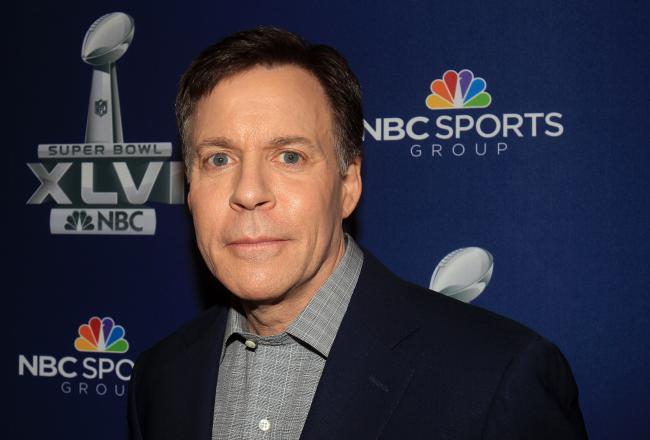In just a few short weeks, NBC will take over the sports world with the Olympics, and you will be seeing and hearing a ton of Bob Costas. He will serve as both the primetime and late night host for NBC, which will have more hours of Winter Olympic coverage than ever before. Between traditional television and streaming, it'll top 1,500 hours.
However, Costas' lone subject of interest is not the Olympics, so I took the opportunity at NBC's Olympic press event on Tuesday to pick his brain on the Baseball Hall of Fame balloting process, and the reactions to his recent commentaries on Sunday Night Football.
Steve Lepore: What do you think about what's happened to the Hall of Fame ballot. Obviously, there's the controversy of Deadspin buying a ballot, and writers becoming more transparent with their ballots, what should be done?
Bob Costas: Tyler Kepner wrote something very interesting [Monday] in the New York Times. He said that we need to expand the diversity of the electorate, but contract the size of it. You need more people from the sabermetric community, you need more bloggers — not just random bloggers, but people who've been vetted and cover baseball over a long period of time and have credibility — perhaps it should include people who aren't just traditional members of the BBWAA.
But at the same time, he thought that with nearly 600 voters, inevitably some percentage of them aren't taking it as seriously or following it as closely as some others. Maybe they'd do better to have a smaller number but draw that number from a wider pool of possibility.
SL: Is there maybe an advantage to the primetime broadcast from Sochi that we perhaps wouldn't expect?
BC: Here's the advantage I think — and this has been proven at every Olympics, including when we began to stream everything live. The overwhelming majority of people who watch the Olympics, want to watch it the way it has been traditionally presented. They want to watch it, at least in primetime, with the backstories, with the anticipation, with the atmospherics, with all the shadings that we can put in.
That includes the people who watched the stream live. People who watched Usain Bolt break the record, and just saw the event, then they want to see all the things that surrounded it. Further, when the Olympics were in Vancouver, the ratings were higher where they were delayed (in the Pacific Time Zone), in places like Seattle and Los Angeles and San Francisco. The ratings were higher than Chicago or Philadelphia. They were high in all places but they were higher yet.
While some people will inevitably complain, and they're entitled to, as a group it appears that the American public not only doesn't have a problem with this sort of primetime presentation, they prefer it. Now that we've addressed the concerns of that portion that as an interest in seeing it [live] by streaming it, what's the problem?
Now, could you cover the NBA Finals that way or the World Series that way? Of course not, but that's a different event.
SL: Do you think we look at it too much as a sporting event and not an entertainment program?
BC: I think it's a unique hybrid of sports and human interest and travelogue and cultural panorama and personal stories. It's unlike anything else in sports, or television, for that matter. Some of it, and it varies depending on Olympics to Olympics, circumstance to circumstance, most of it is that drama, that theater, that sort of backstory stuff, but some of it should be journalism, too. Particularly at this Olympics, some significant portion of it might be journalism. Depending upon what happens. Stuff could happen, and if it does we'll cover it.
SL: Are you aware if NBC has made an outreach to President Putin at this point for an interview during the Games?
BC: I believe NBC News has been working on it, and to me, as long as we get it… if I do it, fine. If someone else does it, fine. As long as someone does it competently. I think Americans want to hear from Vladimir Putin on a number of subjects. Not just on the gay issue, on the terrorism issue, on Edward Snowden, on Ukraine, on a variety of things. The Olympics are a perfect setting for that.
SL: Do you think an unfortunate consequence of your commentaries on gun rights and the name of the Redskins is that you've become part of this sort of back-and-forth, one extreme vs. another debate? Does it annoy you if people now see it as "the Bob Costases of the world vs. the whomevers of the world"?
BC: I can't do anything about how people who are all but completely unaware of my actual motivations and my actual thought process and my actual worldview, how they characterize me. There's not much I can do about it, except never say another word other than 'there's a ground ball to shortstop.' And I don't think that's going to happen.







